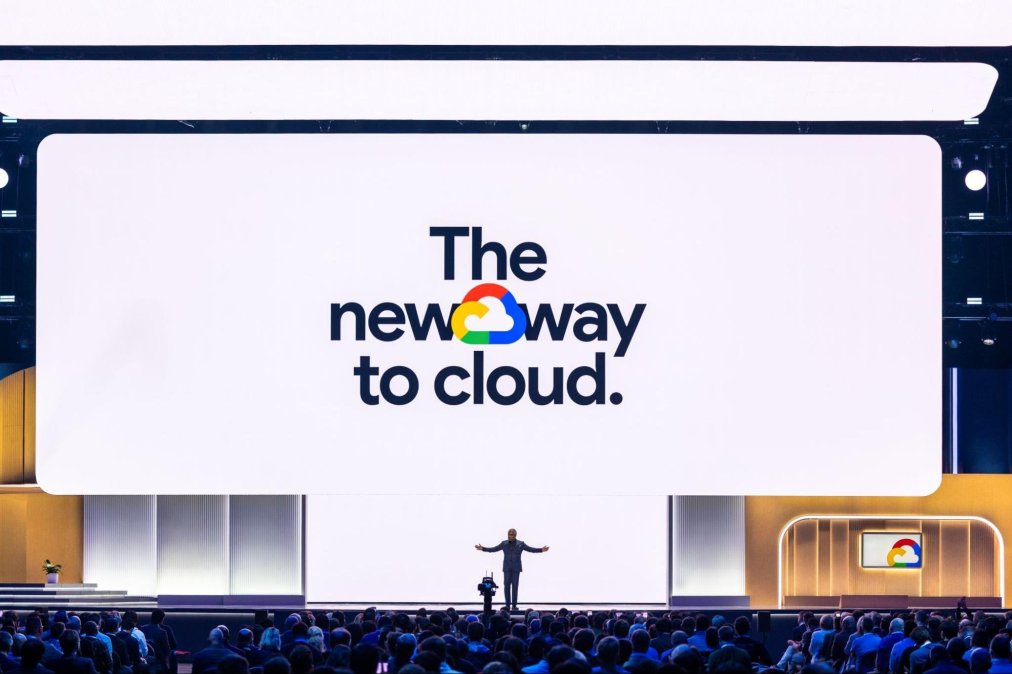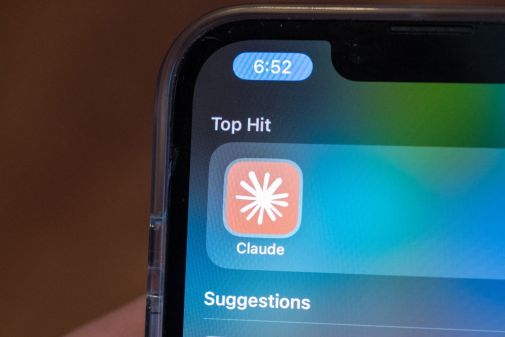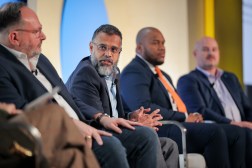Top public sector takeaways from Google Cloud Next 2024

LAS VEGAS — More than 218 new product announcements over the course of three days delivered to more than 30,000 attendees — that, in a nutshell, was Google Cloud’s annual Next tech conference, which took place last week in Las Vegas.
A frenetic energy consumed the Mandalay Bay Hotel and Casino, with so much of that excitement focused on the untapped potential of generative artificial intelligence in every industry. During his keynote to open the conference, Google Cloud CEO Thomas Kurian acknowledged the many massive global corporations like Goldman Sachs, Mercedes Benz and Uber that are using the company’s AI technology to innovate.
And in such an excitable, flashy environment, it’s easy for Google’s budding work with public sector entities to get overshadowed. But despite that, top leaders from Google see huge opportunities for the many new products and announcements out of Next to impact their partners across federal, state and local governments and academia, forecasting continued growth for the nearly two-year-old public sector arm of the Silicon Valley cloud giant.
Karen Dahut, CEO, Google Public Sector
With a sizable portion of Next announcements dedicated to AI, Karen Dahut pointed to “all of the work around building a fully integrated enterprise-grade AI stack” as “so important to our public-sector customers.”
That focus on “enterprise-grade” is the key, she told FedScoop. “It’s not a consumer product being used in enterprise; it is an enterprise product built for large, complex bureaucratic organizations.”
Security also matters a great deal with AI, as it does for any part of the public sector enterprise IT stack, and Dahut pointed to that as a differentiator for Google’s cloud and AI offerings, particularly with a new security operations tool built on Google’s Gemini generative AI platform.
“Security operations are top of mind for all of our federal, state and local governments,” she said. “And knowing that Google Cloud is the most secure cloud — and we continue to build on that — is super important to them.”
Dahut suggested that nearly two years in since the creation of Google Public Sector in June 2022, the organization is still early on in its journey to scale as a major service provider in the public sector technology ecosystem.
The thing that “gives me such confidence in what we are doing is the passion that our customers bring to us,” Dahut explained. “They want to work with us,” she said, referring to partnerships with major customers like the Department of Defense “to purpose-build technology.”
“This isn’t a case where we’re building technology in the back room, and then we come and try to get it accredited,” Dahut said. “We are working very closely with them to build what they need and accredit it along the way.”
She continued: “And that partnership, and that passion for what we’re doing, transcends just Google — our customers feel it, too. So it’s very gratifying.”
Leigh Palmer, VP of Delivery and Operations, Google Public Sector
As Dahut said, Google has worked to position itself as the leader in cloud security to differentiate itself from other cloud services competitors like Amazon and Microsoft.
In that same vein, for Leigh Palmer, Google Public Sector’s new accreditation for Google Distributed Cloud Hosted to handle secret and top secret data for the Department of Defense and intelligence community was the biggest announcement to come out of the conference.
“I like to tell people that sometimes there’s a benefit to being third to market, right? So we could see what went before us and make adjustments for very specific mission sets,” Palmer said in an interview with FedScoop, referring to Google’s biggest competition.
With the authorizations, agencies across the Department of Defense and the intelligence community can use Google Distributed Cloud Hosted — an air-gapped private cloud service tailored to workloads that demand maximized security requirements — to support some of their most sensitive data and applications. It also comes with “core AI services out of the box,” like language translation, search, Document AI and others, Palmer explained.
“What we did when we built and designed GDC-H is we built that cloud from the ground up. So instead of taking a cloud and trying to shrink it into a small form factor, we started with the small form factor and made it expandable, right?” Palmer said. “So open Kubernetes-based, very open source software with the idea of multi-cloud, hybrid cloud in mind. Very customized for data analytics and AI at the edge, because that is our sweet spot. That is what Google is really good at.”
Because of the small form factor, there’s immense flexibility, particularly for sensitive missions at the edge, she said.
“So lots of flexibility for that mission need between kind of that enterprise scale, that tactical scale, and then that middle scale of, you know, ‘I need it to be in a data center in Germany,’ for example,” Palmer added.
Sandra Joyce, VP of Mandiant Intelligence
Much of the hype concerning AI has been focused on its ability to drive and defend against new cyberattacks. Many have predicted that threat actors will use AI and gain an upper hand to keep ahead of an organization’s network defenses.
But largely, that is not yet the case, Sandra Joyce told FedScoop, calling it a “period of opportunity” for network defenders in the public sector the bolster their use of AI for cybersecurity.
Joyce said Mandiant tracks “threat actors from nation states, cybercriminals, hacktivists, all types. And thankfully, right now we’re in this real period of opportunity is what I like to call it. Of all the breaches that we investigate, we’re not seeing AI as the main factor in any of those breaches, which means to me that we have an opportunity to develop our own AI for defenses.”
Where Mandiant sees AI being used by hackers is for “information operations,” Joyce said. “We’re seeing it in the underground, with purported jailbreaks of chatbots that they can provide access to. These pretty low-level and very questionable things. It’s experimentation. So there’s not a ton going on that I would say would outpace what you could traditionally do in the threat landscape.”
But on the cyber defense side, things are moving more dramatically, she said, particularly in the ability to supplement the global shortage in cybersecurity talent.
“What we’re doing with AI internally is very exciting. We’re using it for many different uses, including productivity. So we’re using it to reverse [engineer] malware faster. We’re using it to look at adversary smart contracts. We’re doing that type of experimentation and putting it into our workflows. And we’re already getting some gains in productivity,” she said. “And that’s the important part. Because if you’re looking at the future of cybersecurity, what it really is, is a growing problem, and we cannot keep throwing people at the problem. We need to have technical solutions and AI is one way we can start doing that.”
During her time at Next, Joyce and her colleagues at Google-owned Mandiant also spoke about the frustrations that are keeping CISOs up at night.
Chris Hein, Director of Customer Engineering, Google Public Sector
As the director of customer engineering, Chris Hein inherently serves in a more technical role for Google Public Sector. Despite that, the biggest impact felt from the many announcements out of Next, from Hein’s perspective, is the changing nature of how the government relates to its constituents.
“You think about how many of these services are being built out from like a customer perspective. And so what I really enjoy doing, and I think it’s really important for government agencies to think about, is how do they take their constituent services and make them 10 times better than they are today,” Hein told FedScoop.
Though AI models are often shrouded in new levels of complexity from a technical level in how they function, for public sector entities, the barrier for entry to use them is actually quite low, he said.
“Being able to use these things does not take a whole lot of work or a whole lot of know-how. And so I think it really starts to open the door for way better experiences,” Hein said.
With that, it’s still so important, he said, to “do it safely, responsibly, making sure that we’re reducing hallucinations, and all those kinds of things that we talk about these days.”
“You have to start from first principles on a lot of these things,” Hein said, referencing building that safety and responsibility into AI. “What Google has been building, when we look at our AI strategy, is building on top of this overall zero-trust environment that starts from the ground up. The number one thing we’re going to care about is the security of that dataset and the privacy of that dataset. And so AI is not new to that — that’s just another aspect of that exact same paradigm that we’ve been so focused on for so long.”






